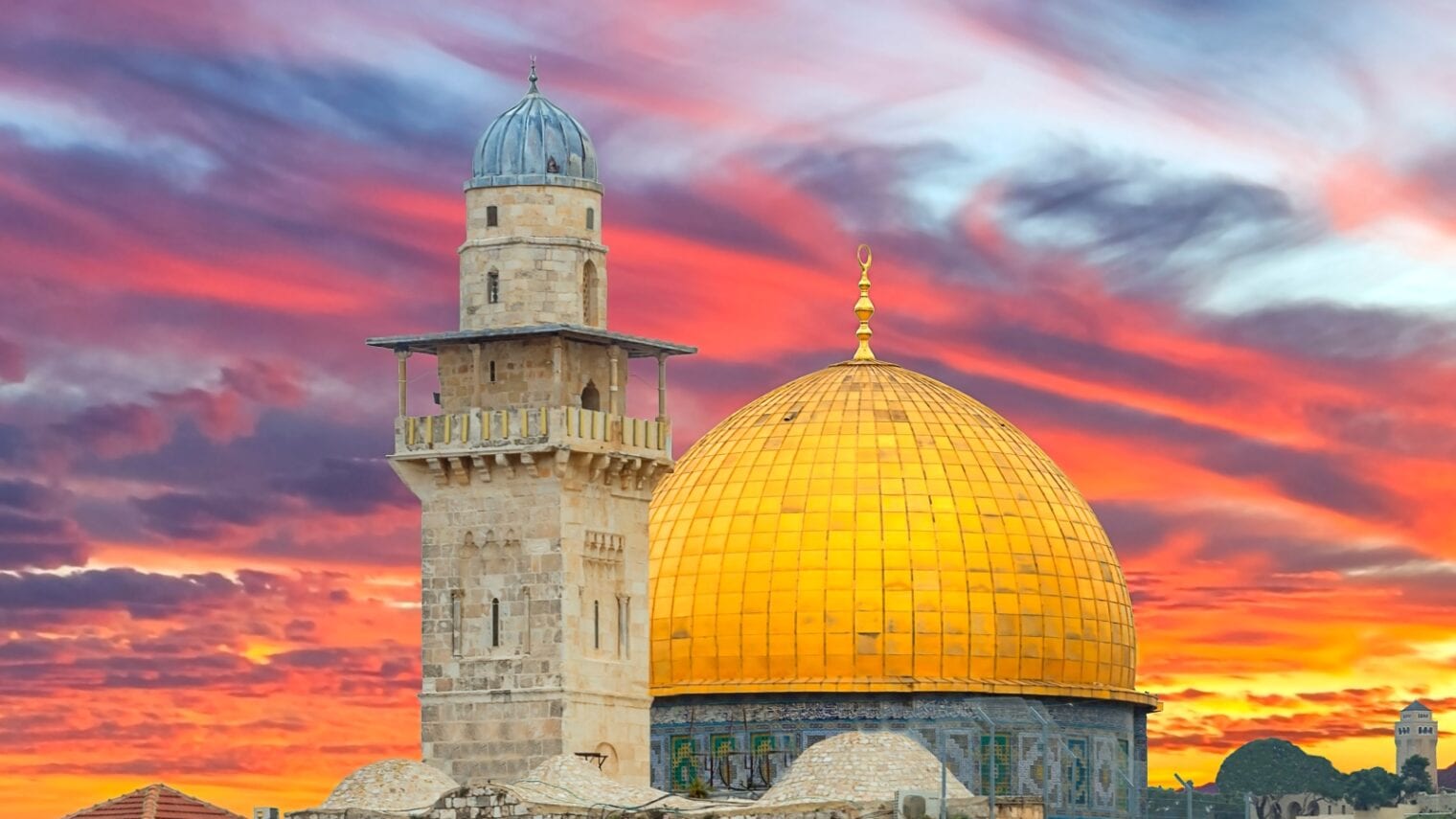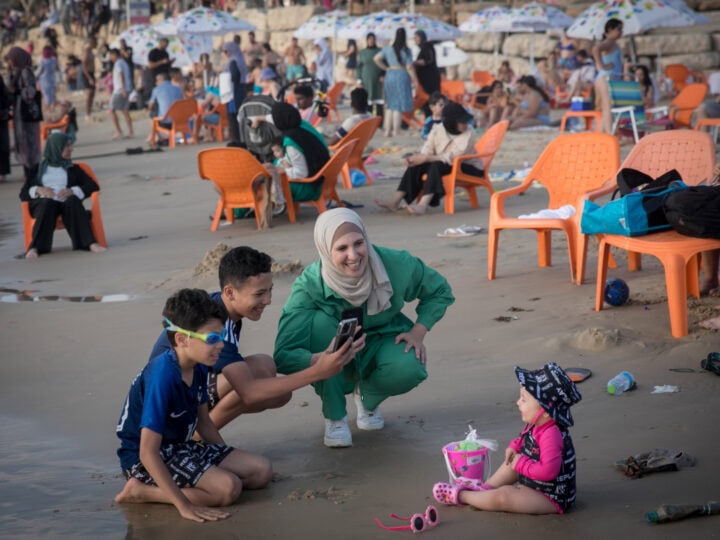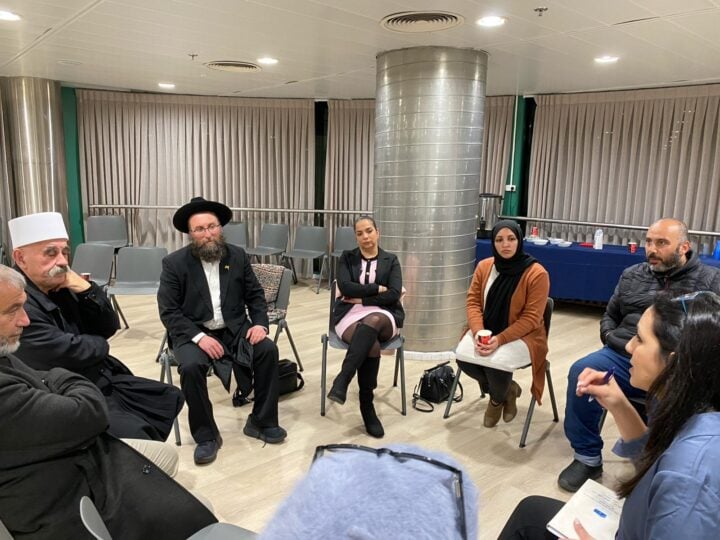The Temple Mount in Jerusalem is a holy site for the world’s three monotheistic religions, especially Judaism and Islam. As such, it’s a religious and political flashpoint that has the potential to ignite the whole region.
The Temple Mount complex is where two ancient Jewish Temples stood – the first destroyed by the Babylonians in 586 BCE and the second by the Romans in 70 CE — and where the present-day Dome of the Rock and the al-Aqsa Mosque buildings hold religious significance for Muslims.
Since 1967, the Temple Mount has been under Israeli sovereignty but is administered by the Jordanian Waqf (religious organization) and Jews are not permitted to pray there. They may pray below at the Western Wall (Kotel) and Southern Wall, remnants of the original retaining walls of the Second Temple complex.
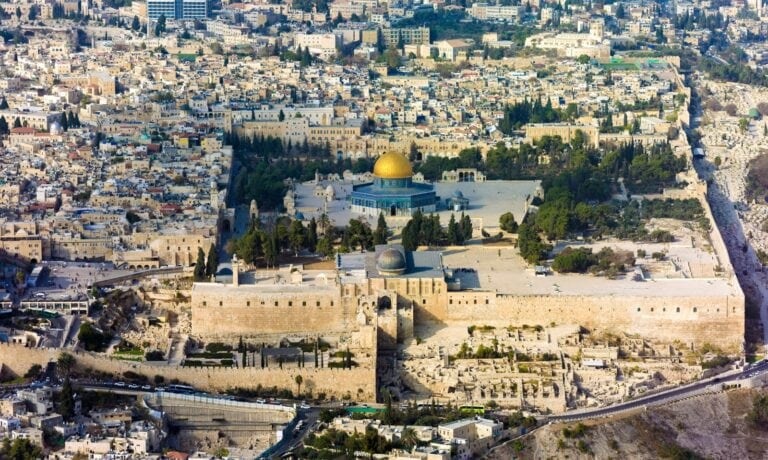
The site has repeatedly been the site of clashes and violence. The Second Intifada, for example, broke out in September 2000 after former prime minister Ariel Sharon visited the Temple Mount. In recent years, Muslim youth have clashed with Jewish visitors and Israeli police forces there.
As Muslims around the world celebrate the holy month of Ramadan – this year, from March 10 to April 9 — the Temple Mount is even more in the spotlight than usual.
ISRAEL21c turned to world renowned Arab and Middle East affairs expert Prof. Moshe Ma’oz, a research fellow and former director at the Harry S. Truman Research Institute, who has served as a visiting professor, scholar and fellow at many universities around the world, to help explain and clarify the issues.
Religious and national
“For Muslims, both the Dome of the Rock and Al-Aqsa are holy,” says Ma’oz, who has served as an advisor on Arab affairs for Israel’s Knesset and was a member of official advisory committees that counseled Prime Ministers Shimon Peres and Yitzhak Rabin.
“Officially, they’re considered the third most important site in Islam, after Mecca and Medina. But because it’s a contested place that’s under Jewish, Israeli sovereignty, it’s in fact turned to be the No. 1 site.”
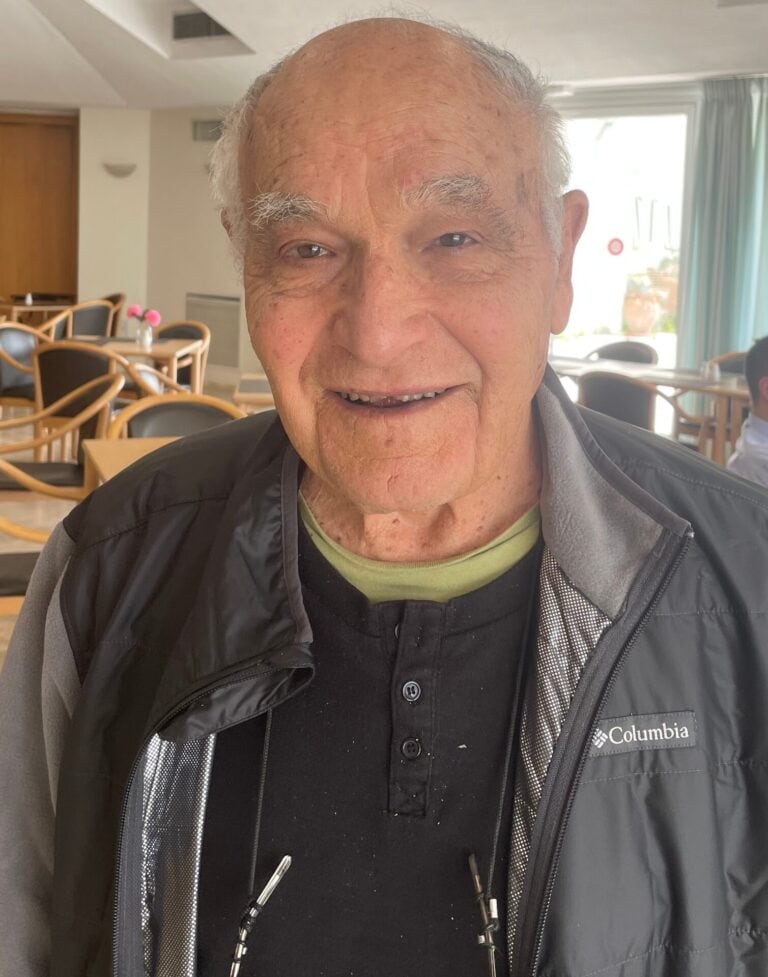
This situation, he says, “is reminiscent of the Crusader period in the 12th century, [when] many Muslims viewed the Temple Mount as the most important site because it was conquered by the Crusaders.”
Just as images of the Western Wall and Temple Mount appear in many Jewish homes, images of the Temple Mount appear in homes across the Muslim world. Worshippers have been making their way for years to Jerusalem to visit and pray at the site for years.
Using the Temple Mount for Arab nationalistic purposes isn’t new either, Ma’oz adds.
“Grand Mufti of Jerusalem Amin al-Husseini promoted propaganda across the world regarding al-Aqsa,” Ma’oz says, referring to the radically nationalist, Nazi-sympathizing Arab leader of the first half of the 20th century.
“For Muslims around the world, the religious aspect is important,” he explains. “But the significance is both religious and national. For the Palestinians, the Temple Mount holds national significance – they view al-Aqsa as a holy place but also as a cultural and national center. For them it’s also a symbol.”
Limiting access
The Temple Mount recently made headlines again after Israeli National Security Minister Itamar Ben-Gvir proposed restricting the entrance of worshippers during Ramadan. Prime Minister Benjamin Netanyahu vetoed Ben-Gvir’s proposal.
“Ramadan had just started, and we saw how Ben-Gvir wanted to prohibit the access of Israeli Arabs to the site. I hope that everything will pass peacefully, because this is explosive, and riots can break out – this is an epicenter for an Armageddon, and we have to be careful,” Ma’oz warns.
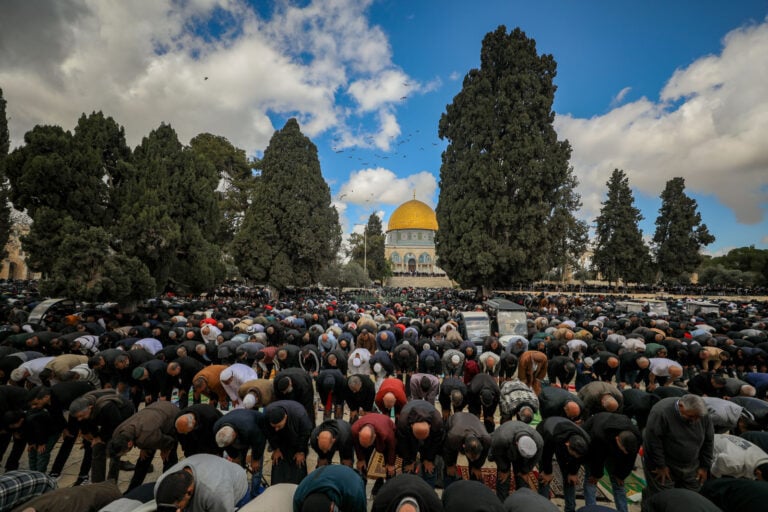
Limiting access of Muslim worshippers to the Temple Mount, particularly from the West Bank, is not a new practice. It is an attempt to ensure security at the site that has seen multiple clashes between Muslims, usually young men, and Israeli security forces.
“It’s true that there’s a problem with young Muslims who want to make trouble, and there’s also a problem with our young people who want to make trouble, so we’re not in a good situation,” Ma’oz says.
Ma’oz is referring to Jews, including Ben-Gvir himself, looking to demonstrate Israel’s sovereignty on the Temple Mount and some who would like to see a third Jewish Temple constructed at the site in place of the holy Arab sites now standing there.
“Harming al-Aqsa [would] mean a world war,” Ma’oz warns.
These Jewish visitors are also protesting the Waqf’s ban on Jewish prayer on the Temple Mount.
“You can say that there’s freedom of worship, and why can’t Jews pray there?” Ma’oz says, but he thinks many of the visitors are really interested in upsetting Muslims and trying to establish a new Temple.
“Up until 1967, we didn’t have access to al-Aqsa, and not even to the Western Wall, and the skies didn’t fall down,” he says. “What we’ve seen since 1967 is radicalization.”
“There were other time periods, such as most of the Muslim periods here, that Jews were allowed to pray at the Western Wall but not on the Temple Mount. They could visit it, but not pray.
“That status quo continued up until recently, and in my opinion the ones to break it were the religious Zionist movement. Even the ultra-Orthodox, who for years abstained from going up to the Temple Mount until Messiah arrives, have changed. The direction is radicalization, and it’s happening to both us and them.”
We need a political solution
Back on Ramadan, Ma’oz hopes things will proceed calmly.
“I think that there needs to be an orderly way to ascend the Mount, especially for Israeli Arabs, Israeli citizens. I suppose that when it comes to Arabs from the [Palestinian Authority administered] territories, there’s no escaping limiting visits according to certain criteria, such as age,” he concedes.
“We must hope that [Ramadan] passes peacefully,” he reiterates, “with the knowledge that the whole Arab world is looking at us over this.”
Ma’oz is writing a book on the Abraham Accords, in which he argues that “one of the reasons that the Abraham Accords have been hurt is because of al-Aqsa. It is an issue that draws the attention of the whole Muslim world.”
Ma’oz says that what is truly needed is a political solution, “and there isn’t one.”




